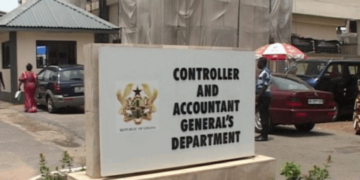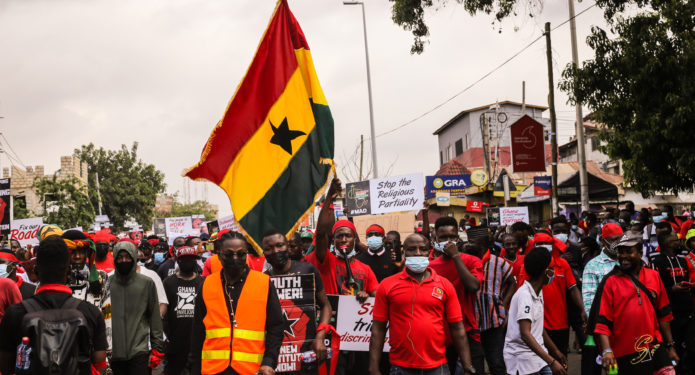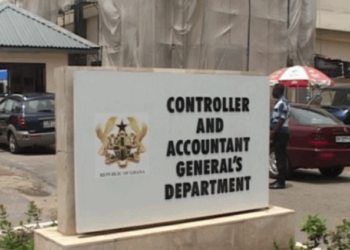The #FixTheCountry Movement has refused an offer from the opposition National Democratic Congress (NDC) to attend their demonstration against the controvertial Electronic Transaction Levy (E-levy).
The letter was handed to the Movement on Friday, February 4, 2022, inviting them to participate in the rally on Thursday, February 10.
However, in its response, the Movement announced that it would instead seek to establish a multi-sectoral and non-partisan coalition against the levy.
“We also have on several occasions expressed concern over the fact that the government has not taken any measures aimed at cutting down expenditure, waste, and the penchant for profligacy among our political class.
“We have also expressed consistent frustration that governments after governments continue to borrow money for projects which they then abandon like the Saglemi housing project, after stealing the project funds through well-designed corruption vehicles. As you all know, no single person in Ghana has been jailed or surcharged for any abandoned project in this country, no matter their political party.
“In light of these, we think that the time has come for us to build a multi-sectoral and non-partisan coalition against the E-Levy. #FixTheCountry is committed to leading that process,” parts of the statement read.
The social advocacy organization, on the other hand, urged all political players, including the NDC, to continue to resist the E-levy.
“We think that the NDC can effectively cripple the government’s agenda in Parliament if they maintain their commitment to the course, without settling or negotiating away the people’s opposition to the levy,” the statement read.
E-Levy
Finance Minister Ken Ofori-Atta revealed on Wednesday, November 17, 2021, during the presentation of the 2022 budget, that the government aims to implement an electronic transaction levy (e-levy).
He said that the levy is being implemented to “widen the tax net and rope in the informal sector.” This came on the heels of the government’s recent declaration that it aims to cease the collecting of road tolls.
The planned levy, which was set to take effect in January 2022, charges 1.75 percent of the value of electronic transactions. It includes mobile money payments, bank transfers, merchant payments, and remittances received from abroad. For transactions of up to GH100 every day, there is an exemption.
In explaining the government’s decision, the Finance Minister said that total digital transactions for 2020 are expected to exceed GH500 billion (about $81 billion), up from GH78 billion ($12.5 billion) in 2016. As a result, there is a need to broaden the tax net to cover the informal sector.
Although the government has stated that it is a novel approach to generate revenue, a wide range of residents and stakeholders have voiced mixed feelings about its appropriateness, with many strongly opposing it.
Despite the fact that some have spoken in favor of the levy, a segment of the population believes that the 1.75 percent e-levy is an insensitive tax policy that would worsen the country’s already dire situation.
Read Also: SIM card re-registration: ‘Don’t make or receive calls tomorrow’ – Group to Ghanaians
source: myjoyonline

























